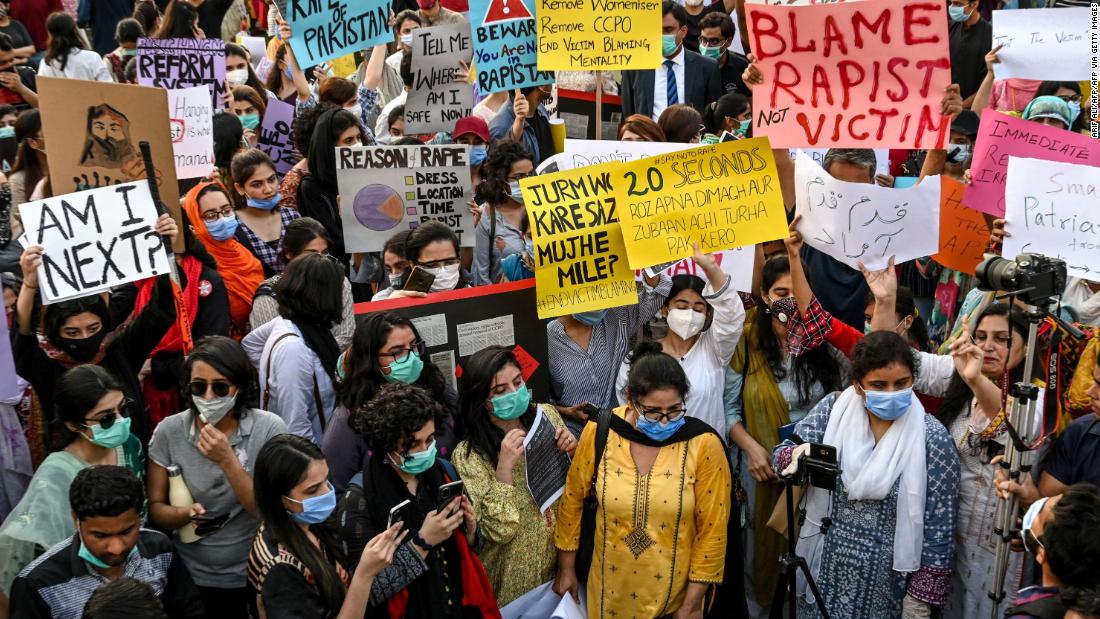
The presidential decree also provides anti-rape cells to conduct medical examinations within six hours of filing a complaint and creates a national sex offender registry.
“The regulation will help speed up cases of sexual abuse against women and children. Special courts will be set up across the country to expedite trials and cases of rape suspects,” President Arif Alvi said on Twitter.
“A register of rape perpetrators will be established at national level. The regulation prohibits the identification of rape victims and makes it punishable,” he added.
Pakistan is debating tougher sentences for sex offenses following public outcry over high profile cases, including the rape in September of a woman driving along a major road with her two children.
Two men were arrested in October and are on remand.
Lawmakers had considered publicly hanging people convicted of sexual abuse and child murder, but the prime minister said in September that this could have cost Pakistan’s preferential trade status with the European Union.
Instead, Imran Khan said he would propose chemical castration of those convicted in the most brutal rape cases.
According to Karachi-based group War Against Rape, less than 3% of sexual assault or rape cases lead to conviction in Pakistan.
The anti-rape ordinance is valid for four months pending parliamentary approval. The text of the decree has yet to be released, but the Justice Minister previously said punishments would include the death penalty and chemical castration.
Women’s rights activists generally welcomed the law, but called for better policing and prosecution to ensure justice for victims of sexual violence.
“It’s a welcome step,” said Salman Sufi, who advocates legislation to protect women from violence in Pakistan’s most populous Punjab province. “But it is a reactive policy with the knees, after the recent increase in reports of rape cases.”
He called for the creation of one-stop justice centers for rape survivors with all-female personnel.
Fauzia Viqar, one of Pakistan’s foremost experts on women’s rights, called on the government to provide gender-sensitive investigation and prosecution.
“With such a low conviction rate of 3 to 4%, you’re not sending a strong message,” she said.
“The government must strengthen the response.”